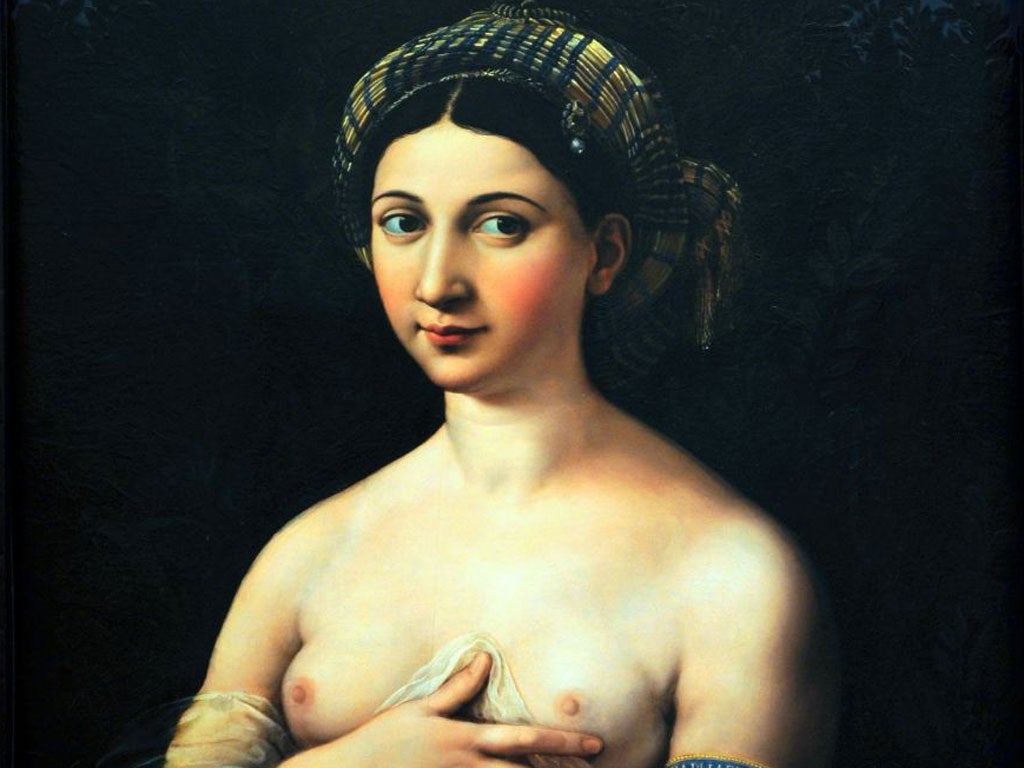With the Hand: A Cultural History of Masturbation By Mels van Driel (trans. Paul Vincent)
Would a culture of solitary delight mean life in vivid colour, or a hundred shades of grey?

Your support helps us to tell the story
From reproductive rights to climate change to Big Tech, The Independent is on the ground when the story is developing. Whether it's investigating the financials of Elon Musk's pro-Trump PAC or producing our latest documentary, 'The A Word', which shines a light on the American women fighting for reproductive rights, we know how important it is to parse out the facts from the messaging.
At such a critical moment in US history, we need reporters on the ground. Your donation allows us to keep sending journalists to speak to both sides of the story.
The Independent is trusted by Americans across the entire political spectrum. And unlike many other quality news outlets, we choose not to lock Americans out of our reporting and analysis with paywalls. We believe quality journalism should be available to everyone, paid for by those who can afford it.
Your support makes all the difference.This book is a follow-up to Mels van Driel's critically celebrated compendium Manhood: the Rise and Fall of the Penis. This time he turns his hand to masturbation, still something of a taboo, he says. With the Hand is an enjoyable, human and humane study of attitudes to masturbation in science, sexology, education, religion, philosophy, art, song and literature, from ancient Egypt to the present.
Enthusiastic wankers have a bad reputation, says van Driel, whose goal is to rescue him and her from the category of the sad and lonely. He explores the history of self-love, "spanking the monkey", "jerking off", "bashing the bishop" (there are more terms for male masturbation than for female), and hopes to rehabilitate the regular masturbator to the realms of sexual legitimacy.
The history of masturbation is necessarily a history of attitudes to the body, to fantasy, love and intimacy. The book abounds with interesting material. There's a chapter on zoology, which shows that many animals masturbate. We can reassure ourselves that it is indeed "natural". Van Driel provides a history of the dildo from classical Greece on; Claude le Petit, a 17th-century French poet, wrote erotic verse and hoped that an aroused reader might roll the book up and use it as a dildo. Reading and masturbation have a long-standing association. Perhaps some clever techno-entrepreneur can find some way of amalgamating the Kindle and Rampant Rabbit?
Most religions have something to say on the matter and the author looks at Judaism, Christianity, Islam and Taoism, offering surprising insights. He also looks briefly at philosophers such as Kant and Schopenhauer. The chapters on writers, poets and artists feel a bit like lists of references to masturbation without deeper analysis. The chapter on art looks at images from classical Greek pottery to Tracey Emin, and reveals how many artists have depicted images of masturbation. Coy critics have been reluctant to discuss the obvious.
Current research shows that almost everybody masturbates, men and women, throughout their lives. Once we've got over the belief that it causes moral and physical degeneracy (held well into early 20th-century Europe and still at work in many parts of the world), it becomes an empty idea, one that can only be filled with meaning (or its lack) by the way we think about it.
The author has an eye for a good anecdote. He highlights anxieties over the sexual development of children, for instance, in the story of how worried parents wrote to toy manufacturer Mattel about their concerns that their 12-year-old daughters were enjoying playing with the Nimbus 2000 broom too much; it was a vibrating Harry Potter broomstick.
This book raises questions that I found pleasing and unsettling, especially about the impact of easy access to sexually explicit material on the Internet. The author wants us to ditch the taboo on masturbation but is also sensitive to the emotional dimensions of sexuality. Clearly some forms of masturbation are not healthy, such as the guilty spouse who secretly watches pornography rather than work at meeting needs with a partner.
I was left wondering if we should hope to dispense with this taboo altogether. Do we want "masturbation lessons" alongside swimming and traffic-awareness, as van Driel suggests? Surely part of the magic of our sexuality is its hiddenness, its unspokenness. Van Driel wants us to love ourselves guilt-free, which sounds like a good idea, but he also predicts a sad vision of the future where increasing numbers are single and our sexuality is plugged into our laptops. We're in danger, he suggests, of turning into a bunch of square-eyed, hi-tech wankers.
Rebecca Loncraine is the author of 'The Real Wizard of Oz: The Life and Times of L Frank Baum' (Gotham)
Buy With the Hand (Reaktion Books) from independentbooksdirect.co.uk for £18 (RRP £20) including postage or call 0843 0600030
Join our commenting forum
Join thought-provoking conversations, follow other Independent readers and see their replies
Comments